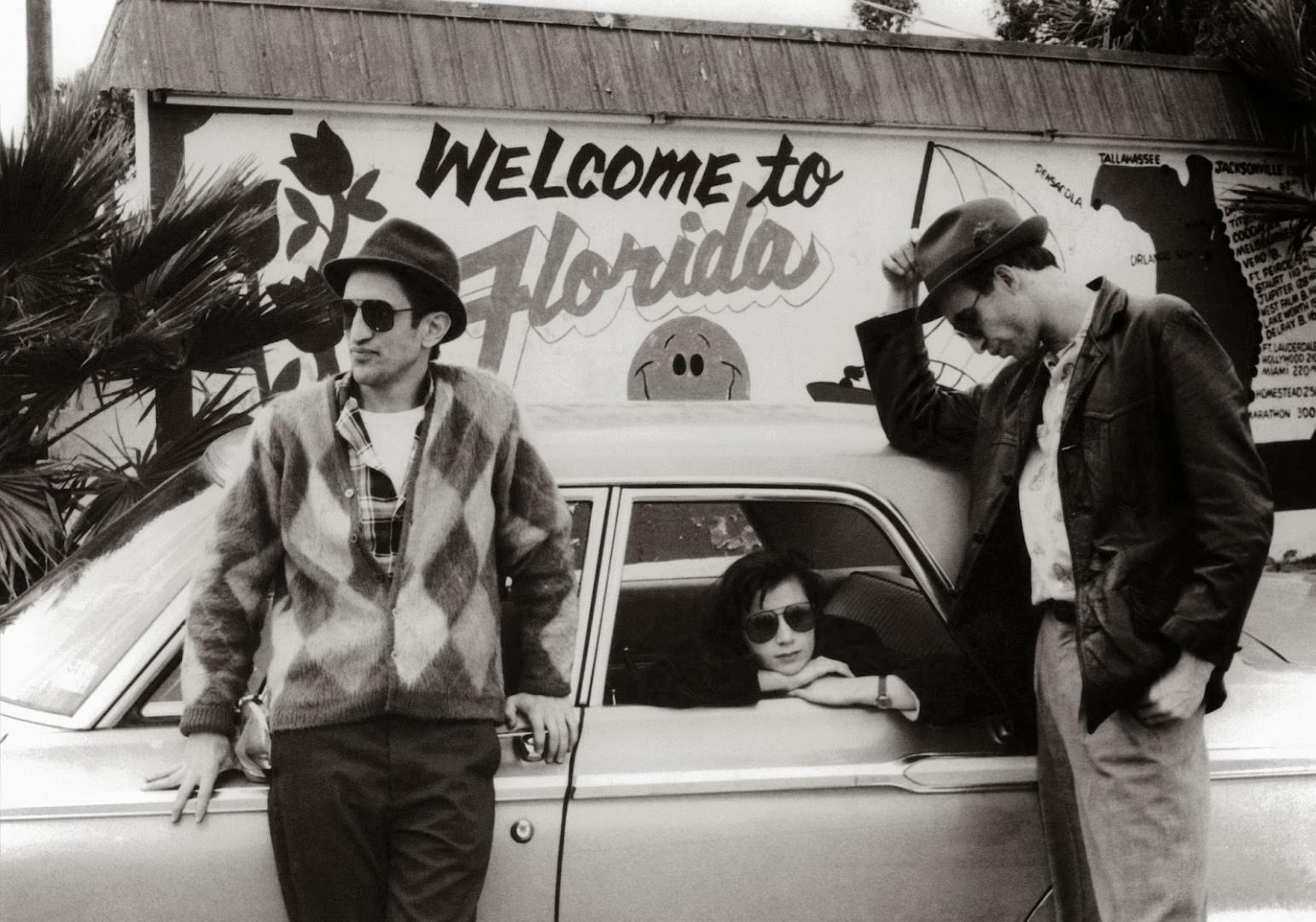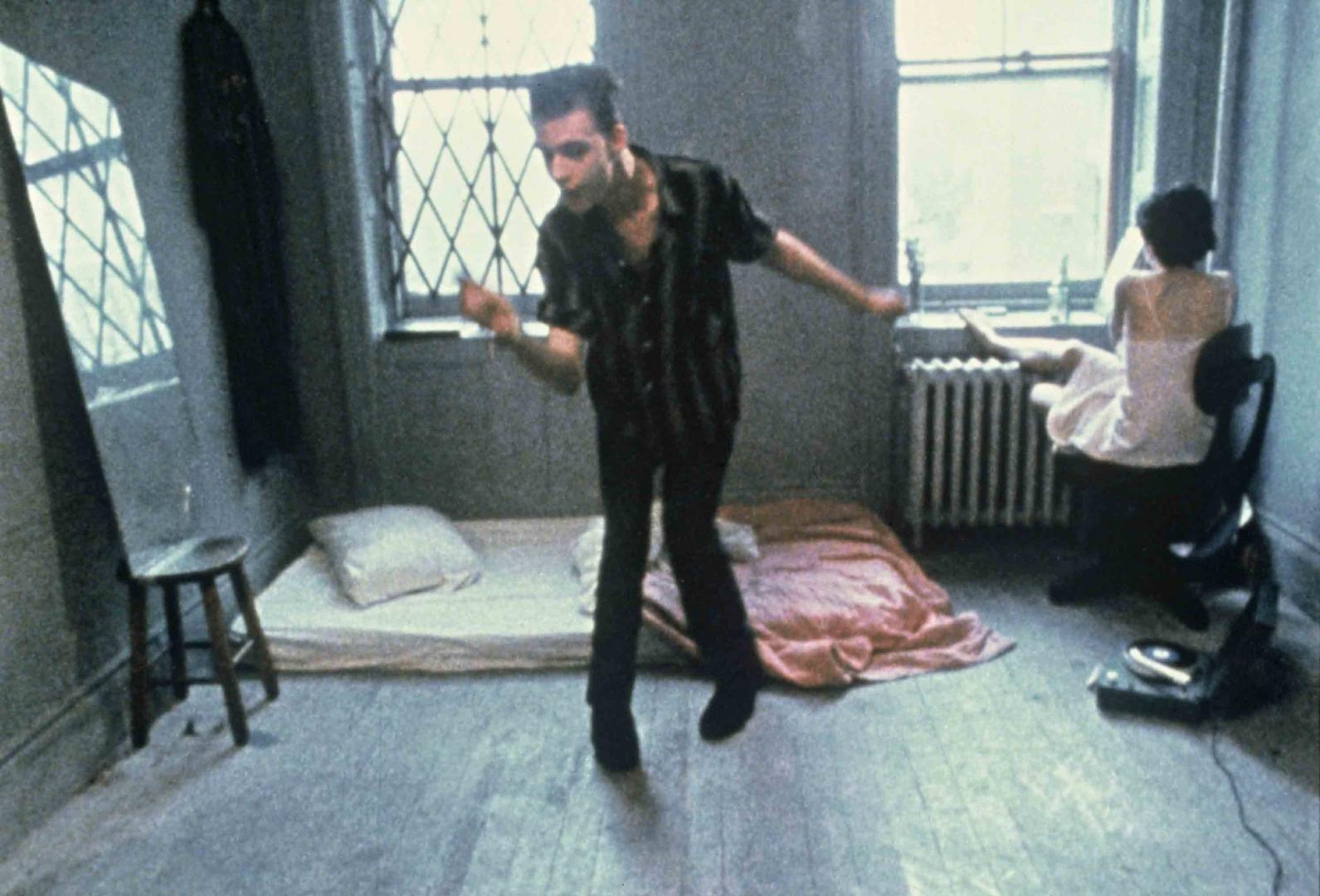As everyone else in this great industry, Jim Jarmusch had to start from the bottom. Let’s see what he had done before he became one of the most unique directors of contemporary arthouse cinema!
Born in 1953, Jim Jarmusch became a film enthusiast early on. He admired cinema just as much as books and music. He wrote poems and short stories at Columbia University. During his university years, when he was an exchange student in Paris, he spent most of his time at the Cinémathèque Française. In this great temple of movies, he started watching all the classics and getting inspired by European and Asian cinema. Eventually he graduated from Columbia and applied to film school, where he spent 4 years without ever getting a degree. His first feature was a work in progress when he dropped out, yet he decided to finish it anyway.
 Stranger than Paradise
Stranger than Paradise
This project became his first feature film in 1980, and was called Permanent Vacation. The 75 minute long, low-budget film, shot on 16mm, follows a young man (played by Chris Parker) wandering around in New York City, searching for nothing other than the meaning of life. The semi-autobiographical movie won the Josef von Sternberg Award at the Mannheim-Heidelberg International Filmfestival. Permanent Vacation already contains some of Jarmusch’s trademarks as an auteur: the leading character is an outsider who wanders around in the urban jungle, having weird, improvised interactions with friends and strangers, and all this is supported by an eerie soundtrack.
At that time, Jarmusch became friends with Wim Wenders, who gave him some leftover film from his shooting of State of Things.
The material was just enough for a 30 minute-long short film, and that’s how the story of his first short film, Stranger than Paradise, began. It was the story of a Hungarian girl who emigrated to the USA and lived with her cousin for a couple of days, before moving on to another city. The short was selected for the International Film Festival in Rotterdam, and Jarmusch managed to raise some money with it, which made it possible to enhance it into a feature film. His first major feature hit made it into the selection of Cannes, and won the Camera d’Or for the Best First Film. Stranger than Paradise is still considered one of the grand beginnings of independent cinema, and not just in the United States, but around the world.
He started his road of success in Cannes, and the festival has been welcoming him and his films back ever since.
Four years after Stranger than Paradise, he returned to the Palais in 1986 with Down by Law, in 1989 with Mystery Train (which won an award for Best Artistic Achievement), then returned with the short film called Somewhere in California in 1993 (which won the Palme d’Or for him). This short later became part of the anthology Coffee and Cigarettes.
Dead Man also had its premiere at the festival in 1995, and so did Ghost Dog: The Way of the Samurai in 1999, but the grand award came the next time around: in 2005 Broken Flowers won the Grand Jury Prize. The Limits of Control was selected in 2009, and so were the loving vampires in Only Lovers Left Alive in 2013. In 2016 Paterson won the prestigious Palm Dog (for the lovely English Bulldog on the side of Adam Driver) and Jarmusch returned once again with the documentary Gimme Danger in 2016, focusing on the eventful life of the rockstar Iggy Pop, who is also one of his beloved actors.
 Permanent Vacation
Permanent Vacation
And it seems that after the cowboys, Japanese lovers, samurais, a lonely old man, a wandering hitman, vampires and an amazingly-still-alive rockstar, he comes back once again to the festival this year, with a bunch of dead people. The loyal marriage between Cannes and Jarmusch has always been warmly welcomed by the audience, and this year will be no exception.
Did you like it? Share it!